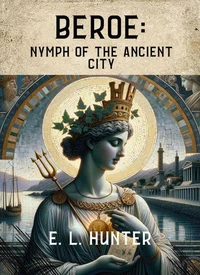LAMIA: Ancient Terror, Enduring Myth From the shadowy edges of Greek mythology emerges one of antiquity's most haunting figures-Lamia, the child-stealing monster whose tragic transformation from grieving mother to predatory beast has captivated and terrified audiences for millennia. This comprehensive study traces Lamia's evolution from her earliest appearances in Greek literature through her Roman adaptations, medieval transformations, and her surprising persistence in modern culture.
Drawing on archaeological evidence, literary analysis, and comparative mythology, the book reveals how this fearsome figure embodied primal anxieties about child safety that transcend time and culture. Discover how Lamia's narrative-a beautiful queen whose children are slain by a jealous goddess, transforming her into a serpentine monster who preys on others' offspring-reflects sophisticated psychological insights about maternal grief, social anxieties about female power, and the universal human need to give form to our deepest fears. The book explores: Lamia's origins and development in classical literature Her relationship to other female monsters in Greek mythology Her transformation through Roman, Byzantine, and medieval traditions Her striking revival in Keats's influential poem and subsequent artistic works Her parallels in global folklore, from Japanese ubume to Indigenous child-stealers Her continuing psychological relevance in understanding how societies process anxieties about child vulnerability Through feminist, psychological, and anthropological lenses, this study illuminates how Lamia's enduring power stems from her embodiment of universal human concerns-the vulnerability of children, the potential darkness within maternal love, and our desperate need to control the uncontrollable. A fascinating journey through mythology, psychology, and cultural history, this book reveals why, after thousands of years, Lamia still lurks in the shadows of our collective imagination.
LAMIA: Ancient Terror, Enduring Myth From the shadowy edges of Greek mythology emerges one of antiquity's most haunting figures-Lamia, the child-stealing monster whose tragic transformation from grieving mother to predatory beast has captivated and terrified audiences for millennia. This comprehensive study traces Lamia's evolution from her earliest appearances in Greek literature through her Roman adaptations, medieval transformations, and her surprising persistence in modern culture.
Drawing on archaeological evidence, literary analysis, and comparative mythology, the book reveals how this fearsome figure embodied primal anxieties about child safety that transcend time and culture. Discover how Lamia's narrative-a beautiful queen whose children are slain by a jealous goddess, transforming her into a serpentine monster who preys on others' offspring-reflects sophisticated psychological insights about maternal grief, social anxieties about female power, and the universal human need to give form to our deepest fears. The book explores: Lamia's origins and development in classical literature Her relationship to other female monsters in Greek mythology Her transformation through Roman, Byzantine, and medieval traditions Her striking revival in Keats's influential poem and subsequent artistic works Her parallels in global folklore, from Japanese ubume to Indigenous child-stealers Her continuing psychological relevance in understanding how societies process anxieties about child vulnerability Through feminist, psychological, and anthropological lenses, this study illuminates how Lamia's enduring power stems from her embodiment of universal human concerns-the vulnerability of children, the potential darkness within maternal love, and our desperate need to control the uncontrollable. A fascinating journey through mythology, psychology, and cultural history, this book reveals why, after thousands of years, Lamia still lurks in the shadows of our collective imagination.

 , qui est-ce ?
, qui est-ce ?